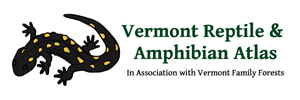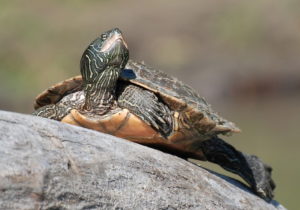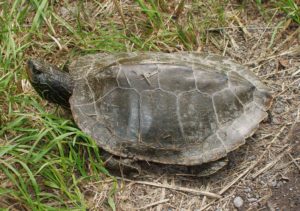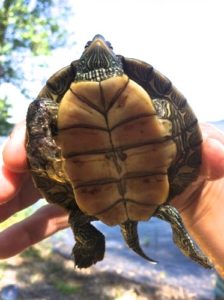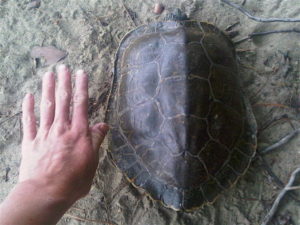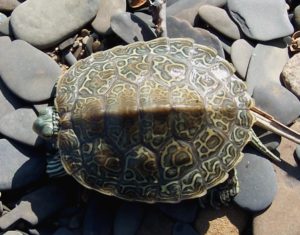Graptemys geographica
Identification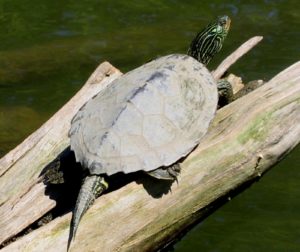
The Northern Map Turtle has a slightly domed, smooth carapace (shell that covers the back) that may have a strong central keel. A close look at their gray-green carapace reveals curved off-white lines that resemble topographic lines on a map. The posterior margin (rear edge) of their carapace is both toothed and flared. The plastron (shell covering their belly) is wide and usually pale yellow. The length of the carapace is 6-11 inches. Their skin is dark green to black with pale yellow stripes. They bask often just as Painted Turtles do, but Painted Turtles look almost black from a distance (versus gray-green) and close up you will see red stripes on the base of the neck and legs and under the edge of the shell on the Painted Turtles. Northern Map Turtles do not have any red on them.
Get more detailed identification and life history information by downloading the chart here.
You can learn more about this species and see some video footage by checking out this short clip or this longer clip about nesting turtles from our Rattlers, Peepers & Snappers DVD. Find answers to some frequently asked questions about turtle nesting, what to do if a turtle nests on your property, and how to protect turtle nests at this link.
Range/Habitat
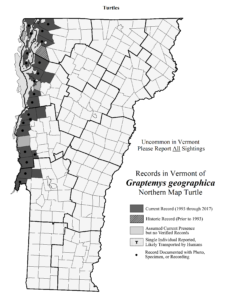
[ click image to zoom | download printable PDF ]
They are almost entirely aquatic although they often bask. Their population in Vermont is almost exclusively Lake Champlain and its major tributaries, with the addition of Lake Hortonia and Sunset Lake. They are not found anywhere else in New England.
Status
This species has a state natural heritage rank of S3 (uncommon). Please report all sightings of this species in Vermont. Take photos if possible. Even historic sighting information is useful.
Additional Photos
More Info
- Graptemys geographica at Animal Diversity website
- Graptemys geographica at Canadian Herpetological Society website
Species summary written by Ariel K. McK. Burgess.
